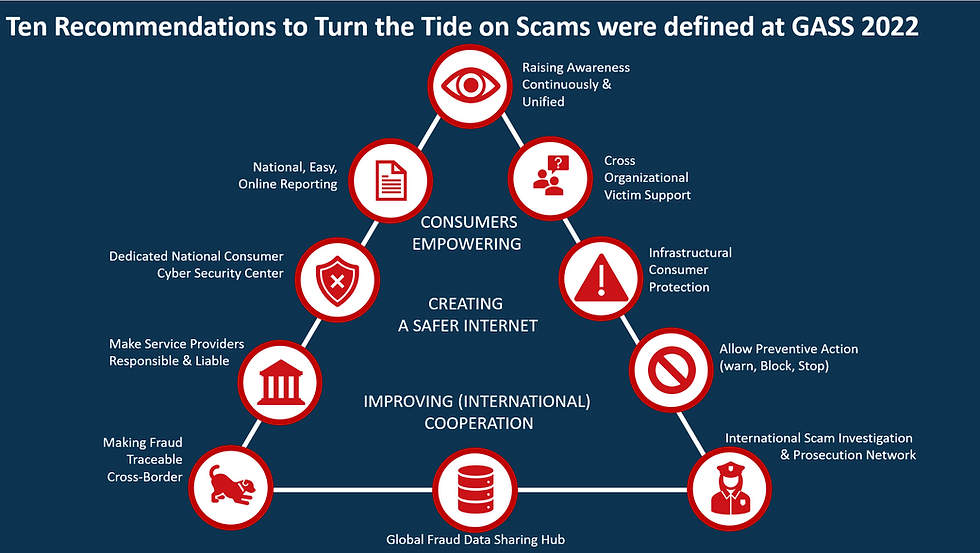
|
IN BRIEF
|
Online scams represent a growing threat in the digital world, designed to deceive individuals into revealing personal, financial, or other sensitive information. These fraudulent schemes exploit the vast reach of the internet, often using sophisticated techniques to gain the trust of unsuspecting victims. Common tactics include phishing emails that mimic trusted organizations, as well as counterfeit websites that appear legitimate but are intended to steal money and sensitive data. Understanding the mechanics of these scams is crucial for effective protection against potential threats.
Online scams are fraudulent schemes conducted via the internet, aimed at deceiving individuals into divulging personal, financial, or sensitive information. These scams can take various forms, often utilizing sophisticated techniques to trick victims, and they can lead to significant financial loss. Understanding the workings and implications of these scams is essential for safeguarding oneself in the digital landscape.
Advantages
One of the primary advantages of understanding online scams is the ability to recognize warning signs. Awareness of the common tactics used by scammers, such as phishing emails and fake websites, empowers individuals to protect themselves effectively. Knowledge about online fraud enhances one’s ability to identify suspicious activities and reduces the likelihood of falling victim to such scams.
Additionally, knowing how online scams operate can foster a more secure online environment. As people become more vigilant, they are less likely to engage with fraudulent schemes. This collective vigilance can lead to a decrease in overall scam prevalence, making the internet a safer place for everyone. For more information on recognizing these threats, you can visit this guide.
Disadvantages
Despite the benefits of understanding online scams, there are notable disadvantages that must be considered. One challenge is the constant evolution of scam tactics, which makes it difficult for individuals to stay ahead. Scammers frequently update their methods, incorporating new technologies and exploiting current events to make their scams more convincing. This dynamic nature can result in complacency among users who may believe they are immune to such tactics.
Moreover, the emotional toll on victims of online scams can be significant. Individuals may experience feelings of shame, anger, and anxiety after being deceived. The psychological impact can lead to a heightened sense of vulnerability and distrust in online transactions. As this issue persists, resources such as this website can provide valuable insights on the broader implications of online fraud.
What Are Online Scams?
Online scams are deceptive practices carried out via the internet aimed at tricking individuals into disclosing personal, financial, or other sensitive information. These fraudulent activities can range from simple phishing emails to elaborate schemes designed to extract money from unsuspecting victims. Understanding the types of online scams and their mechanics is essential for protecting oneself in the digital age.
How Do Online Scams Work?
Online scams typically operate by leveraging the power of the internet to create elaborate setups where victims are deceived into providing information or money. Scammers often impersonate legitimate organizations or individuals to gain the trust of potential victims.
Types of Online Scams
There is a vast array of online scams targeting different kinds of victims. Some have become increasingly sophisticated, making it crucial for individuals to be aware of the most common types:
- Phishing Emails: Scammers frequently send emails that appear to be from trusted entities, such as banks or payment services, in an attempt to steal sensitive information.
- Fake Retailer Websites: Fraudsters may create counterfeit websites that resemble legitimate online stores, enticing users to make purchases or provide payment details.
- Investment Scams: Offering unrealistic returns on investments can lure victims into parting with their money, often with little chance of recovering it.
Recognizing Signs of Fraud
Knowing how to identify potential scams is key. Look for warning signs like:
- Unusual requests for personal information.
- Urgency in communication, often indicating that immediate action is needed.
- Poor grammar and spelling in messages, which is common in scams.
Protecting Yourself from Online Scams
To guard against falling victim to online scams, employing a few simple strategies can provide significant protection. Always verify the source of emails before clicking on links or downloading attachments. For a comprehensive guide on recognizing and avoiding such scams, consider visiting this resource.
Can Scammers Be Traced?
The pursuit of online scammers is often challenging, but not impossible. Utilizing techniques such as digital forensics and data analysis can increase the likelihood of tracking them down. For further insight into this process, refer to the information available here.
Online scams remain a pervasive threat that can impact anyone navigating the digital landscape. By staying informed and vigilant, individuals can protect themselves and minimize the risks associated with these fraudulent activities. For additional details on various scams to look out for, visit this site or check out this article.

Online scams are deceptive schemes carried out via the internet, with the primary goal of tricking individuals into revealing personal, financial, or sensitive information. These fraudulent activities exploit various online platforms to gain the trust of victims while ultimately aiming for financial gain. Understanding the types and functioning of online scams is essential to safeguard oneself against such deceitful practices.
Understanding Online Scams
An online scam often involves impersonation or manipulation to extract valuable information from individuals. Scammers may present themselves as trustworthy entities, such as banks or online retailers, to lend credibility to their cons. According to the New Zealand Government’s “Own Your Online”, these schemes can take various forms and are becoming increasingly sophisticated in their execution.
Common Types of Online Scams
There are several common scam types that individuals should be aware of. Phishing attacks are among the most prevalent, where scammers send emails or text messages masquerading as trusted institutions, attempting to steal personal information like passwords or account numbers. Additionally, fake retailer websites are often set up to resemble legitimate online stores, using stolen logos and design to mislead potential victims. These tactics ensure that scammers can successfully deceive unsuspecting users into sending money or divulging personal data.
Recognizing the Signs of Online Scams
To outsmart online scammers, it is crucial to recognize the signs of potential scams. Look for unsolicited messages that create a sense of urgency, which is a common tactic used to provoke hasty decisions. Additionally, be cautious of email addresses that do not match the organizations they claim to represent. For more detailed advice, visit this resource on outsmarting scammers.
How to Protect Yourself from Online Scams
Protecting yourself from online scams involves being proactive and informed. Regularly updating your passwords and utilizing two-factor authentication can significantly enhance security. Moreover, educating oneself about the latest scam trends is paramount, as scammers continually adapt their methods. Fortinet offers extensive insights on internet fraud that can aid in understanding these evolving threats.
Taking Action Against Scammers
If you suspect that you have encountered an online scam, immediate action is crucial. Report any suspicious activity to the relevant authorities and institutions. Keeping records of communication or transactions can be beneficial in pursuing any claims. By being vigilant and informed, you can contribute to a safer online community and protect yourself from potential fraud. For emerging threats and updates on online scams, consider checking Norton’s Blog.
Types of Online Scams and Their Methods
| Type of Online Scam | Method of Operation |
| Phishing | Scammers send fake emails to trick victims into providing personal information. |
| Fake Online Stores | Scammers create fraudulent websites that resemble legitimate retailers to collect payments. |
| Advance Fee Fraud | Victims are promised large sums of money in exchange for a small upfront payment. |
| Tech Support Scams | Scammers pose as technical support to manipulate victims into paying for unnecessary services. |
| Investment Scams | False investment opportunities lure victims with promises of high returns. |
| Online Dating Scams | Scammers establish romantic relationships to solicit money under various pretenses. |
| Lottery Scams | Victims are falsely informed that they have won a lottery, requiring them to send money to claim it. |
| Dictator or Royalty Scams | Scammers impersonate foreign leaders or royalty to solicit financial assistance. |

Online scams are fraudulent schemes executed over the internet, designed to deceive individuals into giving up their personal, financial, or other sensitive information. They vary in method and complexity but ultimately share the same goal: to exploit trust for financial gain.
These scams often utilize technological advancements to create fake websites that mimic legitimate retailers. Victims may believe they are shopping at a reputable store but are instead providing their credit card details to cybercriminals. The deception can be sophisticated, involving stolen branding, logos, and the overall design that closely resembles well-known platforms.
Another common tactic is phishing, where scammers send emails or messages pretending to be from trusted organizations, such as banks or payment services. These messages typically contain links that, when clicked, lead to counterfeit web pages aimed at capturing users’ account information or passwords. This form of deception relies heavily on creating a sense of urgency, prompting individuals to act quickly without thorough consideration.
Online scams can be further categorized into various types, including advance-fee scams, where victims are promised large sums of money in exchange for upfront payments, and tech support scams, where fraudsters impersonate technical support agents to gain access to victims’ computers. Each of these scams utilizes psychological manipulation, often playing on the emotions or fears of individuals.
In order to counter these threats, it’s essential to stay informed about the latest trends in internet fraud and participate in educational programs that raise awareness about recognition and prevention. Understanding how these scams operate enables individuals to take preventative measures, such as scrutinizing incoming communications and practicing caution with unknown sources.
Understanding Online Scams
Online scams are deceptive practices executed through the internet, aimed at tricking individuals into revealing personal and financial information. They exploit digital platforms to manipulate victims, often leading to significant financial losses. This guide will explore the various types of online scams, how they operate, and key strategies to protect yourself from becoming a victim.
What Are Online Scams?
Online scams can be defined as fraudulent schemes that use the internet to target unsuspecting individuals. Scammers employ a variety of tactics, leveraging the anonymity and reach of the web to exploit individuals for financial gain. Common ploys may include solicitation through email, social media, and fake websites that mimic trusted brands.
Types of Online Scams
There are numerous types of online scams, each with its unique approach. Some of the prevalent categories include:
- Phishing Scams: Scammers send emails that seem to be from legitimate sources, such as banks or reputable organizations, urging recipients to click on links or provide sensitive information.
- Fake Online Retail Stores: Scammers create websites that look remarkably similar to established retailers, tricking consumers into purchasing non-existent products.
- Advance Fee Scams: Victims are contacted with promises of large sums of money, in exchange for a smaller upfront fee, often never to be seen again.
- Investment Scams: Promises of high returns on investments that are often too good to be true, misleading individuals into investing money into non-existent opportunities.
How Do Online Scams Work?
The modus operandi of online scams typically centers around deception. Scammers harness psychological manipulation, urging individuals to act quickly without processing the information for risks involved. Here are several ways these scams operate:
Deceptive Communication
Scammers use sophisticated methods to communicate with potential victims. They often masquerade as legitimate businesses or authoritative figures, instilling a false sense of security. Emails may use official logos or language that mimics trusted entities, making it difficult for individuals to distinguish authenticity.
Collecting Personal Information
Many online scams aim to gather personal information such as credit card details, Social Security numbers, and passwords. Scammers may create scenarios that incite fear or urgency, prompting victims to provide sensitive data without scrutiny.
Financial Exploitation
Once scammers obtain critical information or money, they may either exploit the information for direct financial gain or use it to facilitate further scams. In many cases, victims will find it challenging to recover lost funds as many scams operate from overseas locations or involve counterfeit identities.
Recognizing and Avoiding Online Scams
Staying informed and vigilant is crucial for avoiding online scams. Here are some preventive measures:
- Verify Sources: Always verify the legitimacy of emails or messages claiming to be from organizations you trust. Check official websites or contact customer service directly.
- Look for Red Flags: Be cautious of unsolicited messages that create a sense of urgency or ask for sensitive information.
- Secure Your Personal Information: Avoid sharing personal or financial information unless you are sure of the recipient’s legitimacy.
- Use Security Software: Implement anti-virus and security software to protect your devices from malicious threats.
The Role of Education in Prevention
Education plays a vital role in preventing online fraud. Understanding how scams operate and recognizing common tactics can empower individuals to protect themselves. Regular updates on emerging scams can aid in remaining cautious and prepared against potential threats.

Understanding Online Scams and Their Mechanisms
Online scams> have become a significant concern in today’s digital landscape. These deceptive practices are designed to exploit individuals’ trust, often leveraging the anonymity and vast reach of the internet. At their core, online scams involve various tactics aimed at tricking victims into providing sensitive information or financial resources.
One common method scammers use is phishing>. This can occur through emails or text messages that mimic legitimate organizations, such as banks or popular online services. Victims may receive messages urging them to click on links or provide personal data, which ultimately leads to identity theft or unauthorized access to their accounts. The sophistication of these scams continues to evolve, making it essential for individuals to remain vigilant.
Moreover, there are other forms of online fraud, such as fake retailers>. Scammers often create counterfeit websites that closely resemble genuine online stores, utilizing stolen logos and visually appealing layouts. Consumers are lured into making purchases from these fraudulent platforms, only to find out later that their money has vanished and no product was actually delivered.
Understanding the mechanics of online scams is crucial for staying protected. Awareness of common types of scams and their red flags can empower individuals to recognize and avoid falling prey to these malicious activities. Implementing practices such as verifying the authenticity of requests for personal information, using strong passwords, and remaining cautious of deals that seem too good to be true are fundamental steps in safeguarding oneself against online fraud.
As technology continues to advance, so too do the strategies employed by scammers. Recognizing and understanding these tactics not only enhances personal security but also contributes to creating a safer online environment for everyone.
